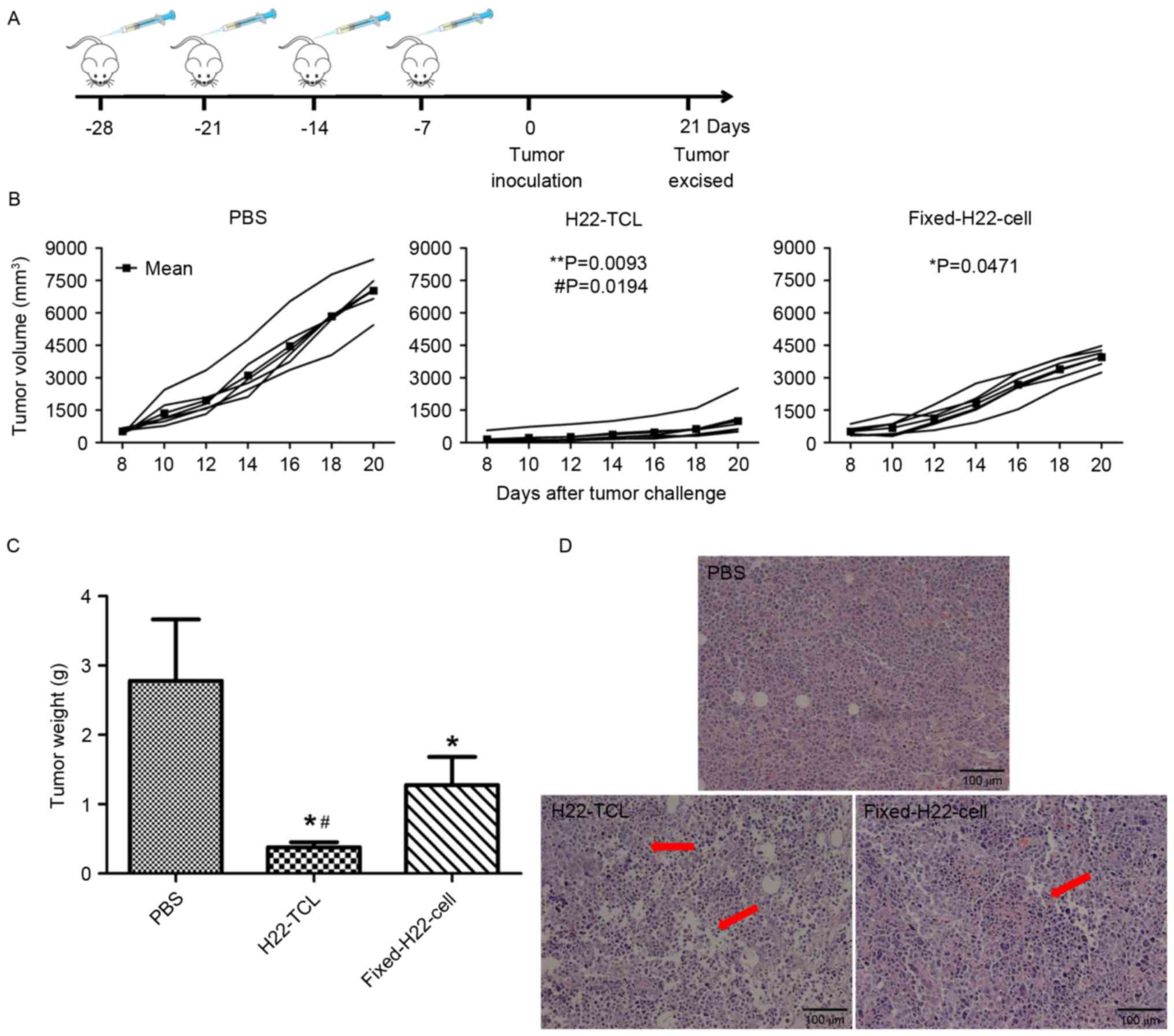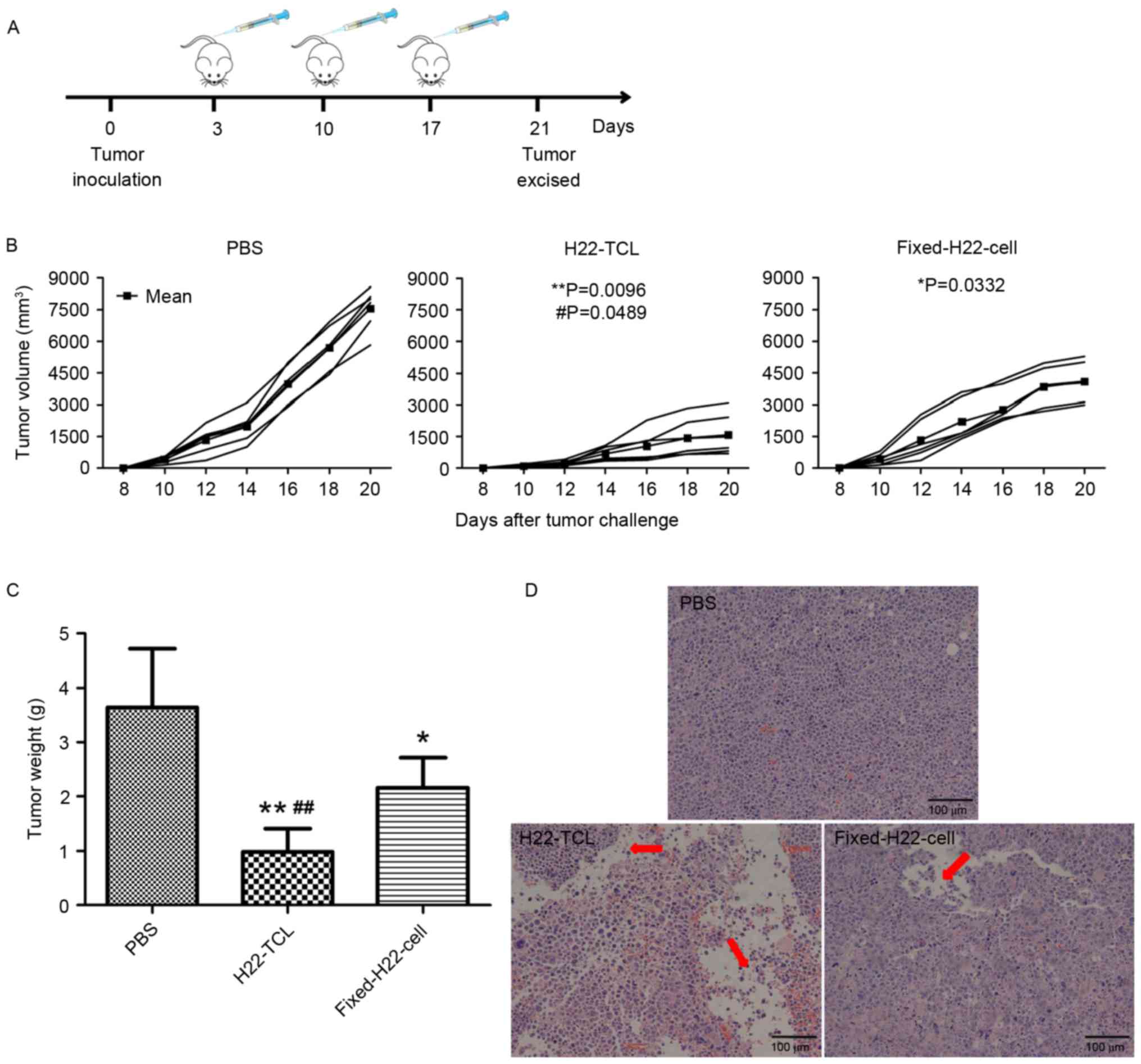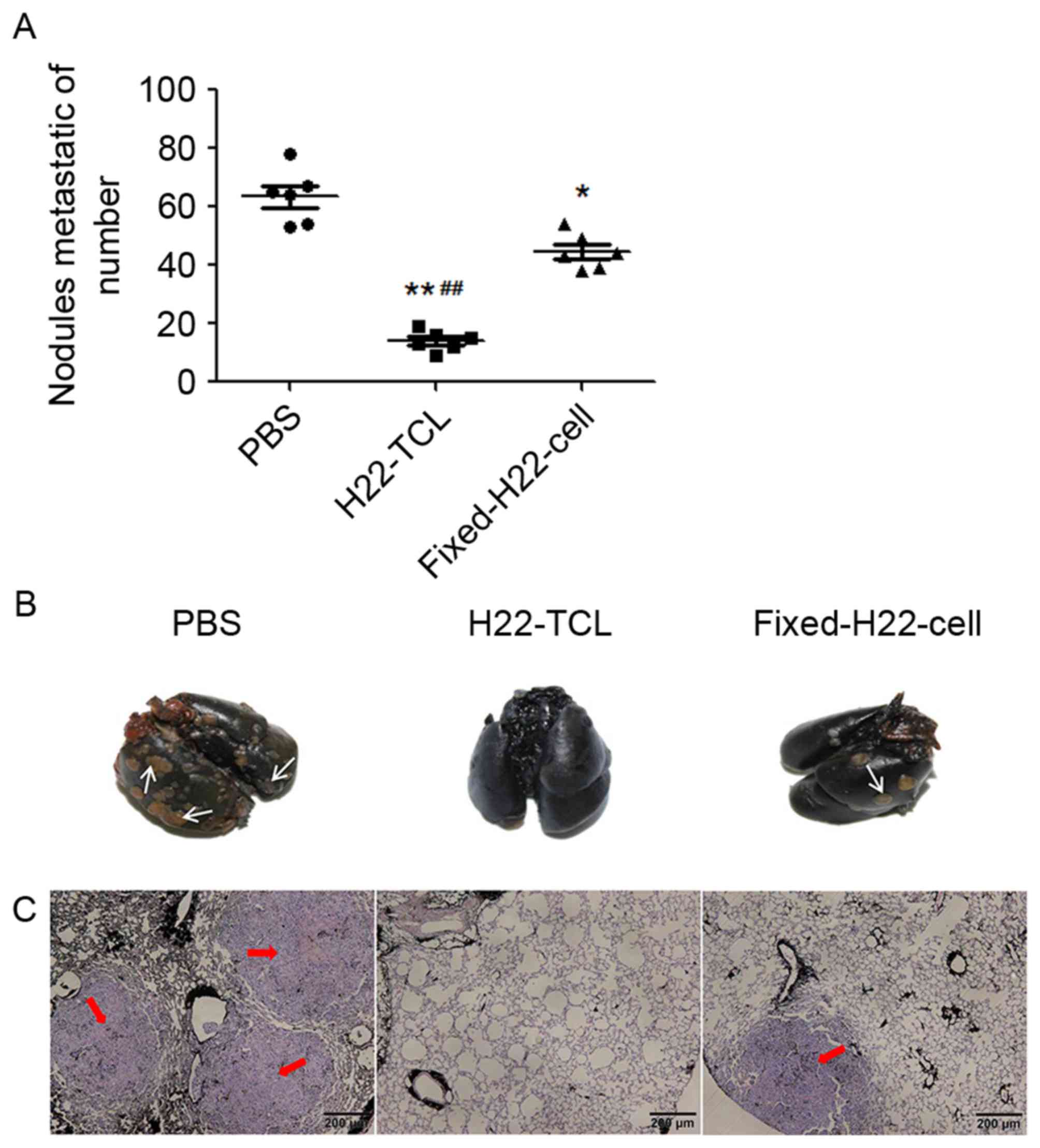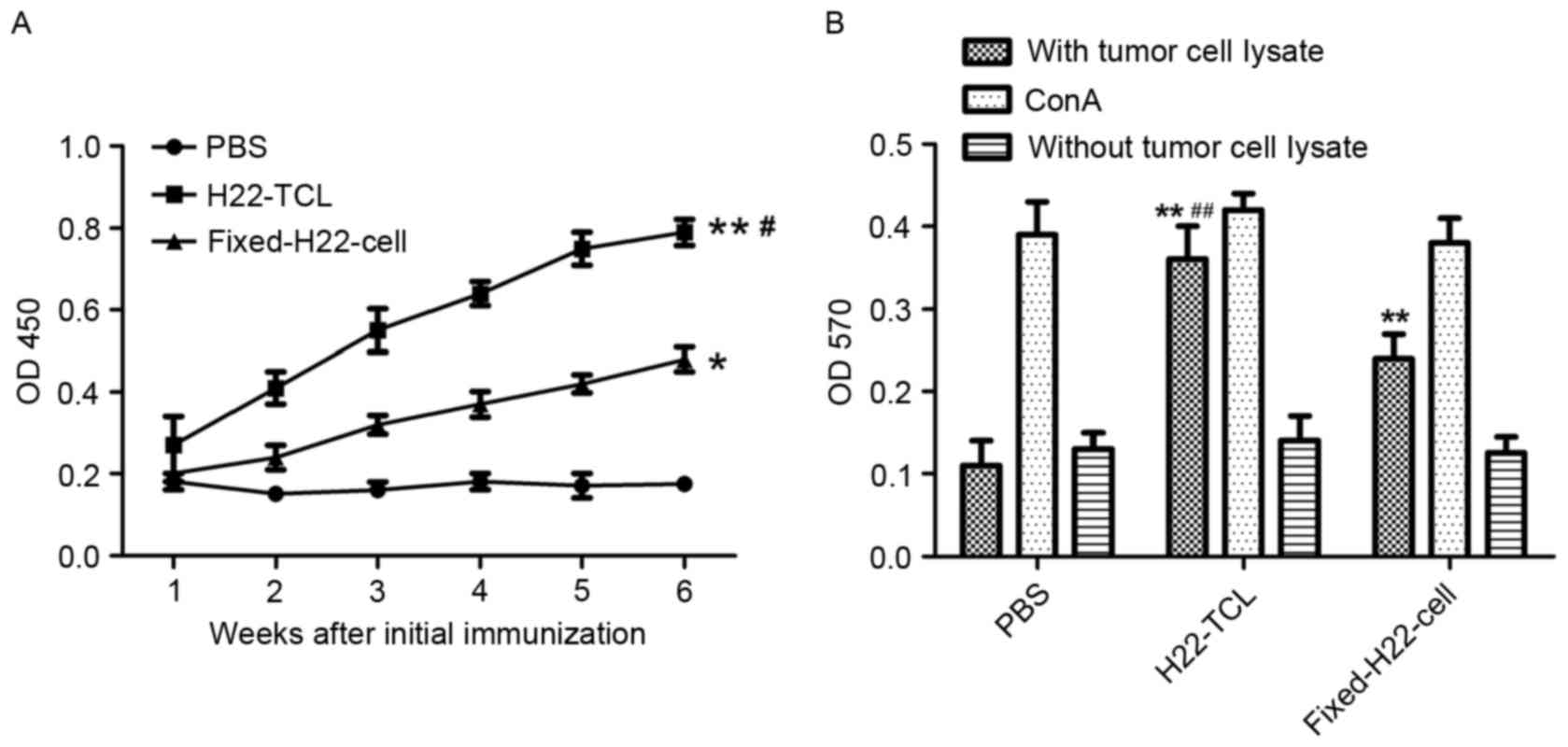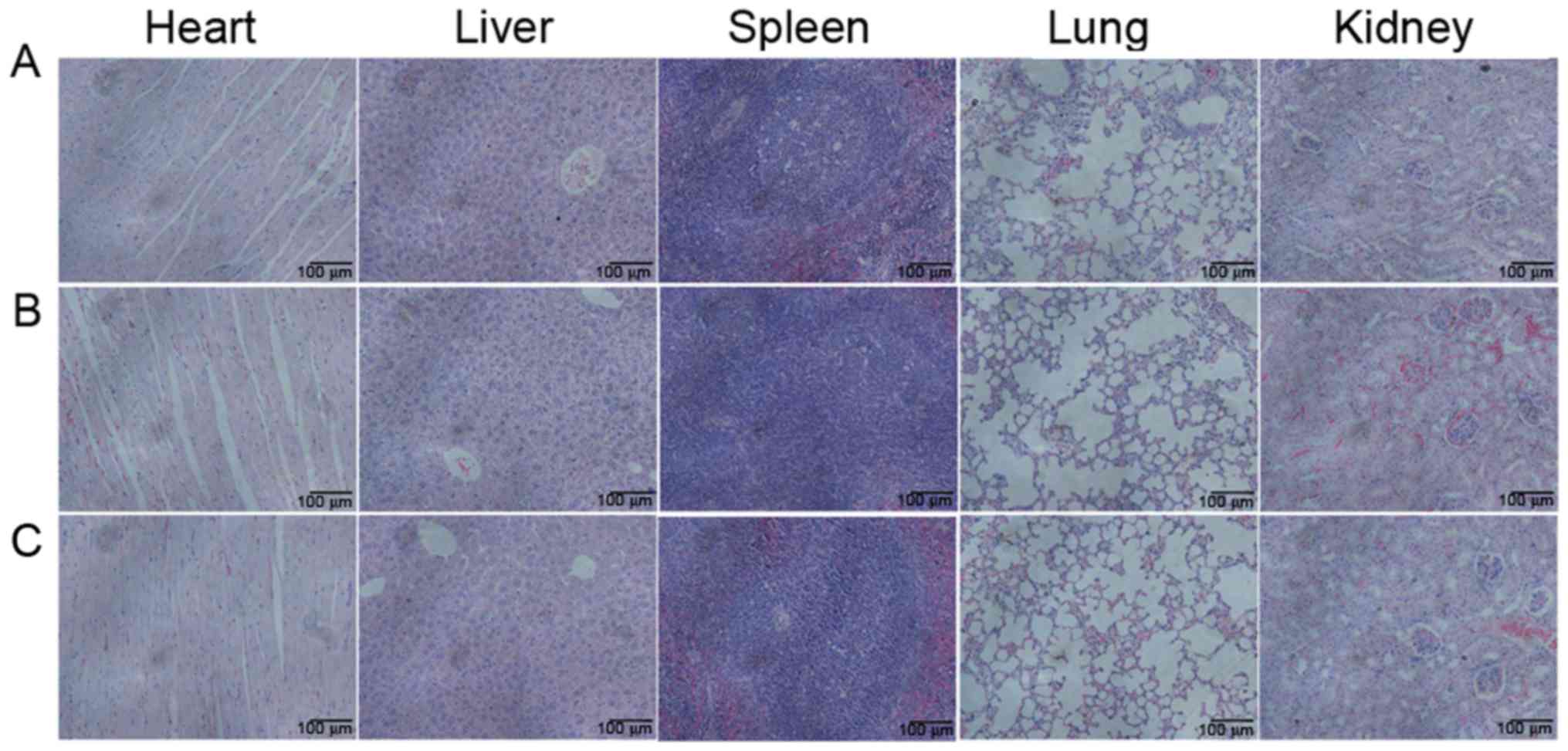|
1
|
Ray K: Liver cancer: The promise of new
approaches in the management of hepatocellular carcinoma-adding to
the toolbox? Nat Rev Gastroenterol Hepatol. 10:1952013. View Article : Google Scholar : PubMed/NCBI
|
|
2
|
Dong B, Dai G, Xu L, Zhang Y, Ling L, Sun
L and Lv J: Tumor cell lysate induces the immunosuppression and
apoptosis of mouse immunocytes. Mol Med Rep. 10:2827–2834. 2014.
View Article : Google Scholar : PubMed/NCBI
|
|
3
|
Grotz TE, Kottschade L, Pavey ES, Markovic
SN and Jakub JW: Adjuvant GM-CSF improves survival in high-risk
stage iiic melanoma: A single-center Study. Am J Clin Oncol.
37:467–472. 2014. View Article : Google Scholar : PubMed/NCBI
|
|
4
|
Tada F, Abe M, Hirooka M, Ikeda Y, Hiasa
Y, Lee Y, Jung NC, Lee WB, Lee HS, Bae YS and Onji M: Phase I/II
study of immunotherapy using tumor antigen-pulsed dendritic cells
in patients with hepatocellular carcinoma. Int J Oncol.
41:1601–1609. 2012. View Article : Google Scholar : PubMed/NCBI
|
|
5
|
Chen IJ, Yen CF, Lin KJ, Lee CL, Soong YK,
Lai CH and Lin CT: Vaccination with OK-432 followed by TC-1 tumor
lysate leads to significant antitumor effects. Reprod Sci.
18:687–694. 2011. View Article : Google Scholar : PubMed/NCBI
|
|
6
|
Huang L and Ohno T: Protective antitumor
immunity induced by fixed tumor cells in combination with adjuvant
in a murine hepatoma model. Cancer Lett. 202:153–159. 2003.
View Article : Google Scholar : PubMed/NCBI
|
|
7
|
Novaković S, Stegel V, Kopitar A, Ihan A
and Novaković BJ: Preventive and therapeutic antitumor effect of
tumor vaccine composed of CpG ODN class C and irradiated tumor
cells is triggered through the APCs and activation of CTLs.
Vaccine. 25:8241–8256. 2007. View Article : Google Scholar : PubMed/NCBI
|
|
8
|
Suckow MA, Rosen ED, Wolter WR, Sailes V,
Jeffrey R and Tenniswood M: Prevention of human PC-346C prostate
cancer growth in mice by a xenogeneic tissue vaccine. Cancer
Immunol Immunother. 56:1275–1283. 2007. View Article : Google Scholar : PubMed/NCBI
|
|
9
|
Yin W, He Q, Hu Z, Chen Z, Qifeng M,
Zhichun S, Zhihui Q, Xiaoxia N, Li J and Gao J: A novel therapeutic
vaccine of GM-CSF/TNFalpha surface-modified RM-1 cells against the
orthotopic prostatic cancer. Vaccine. 28:4937–4944. 2010.
View Article : Google Scholar : PubMed/NCBI
|
|
10
|
Wang ZY, Xing Y, Liu B, Lu L, Huang X, Ge
CY, Yao WJ, Xu ML, Gao ZQ, Cao RY, et al: Protective antitumor
immunity induced by tumor cell lysates conjugated with diphtheria
toxin and adjuvant epitope in mouse breast tumor models. Chin J
Cancer. 31:295–305. 2012. View Article : Google Scholar : PubMed/NCBI
|
|
11
|
Xu M, Zhou L, Zhang P, Lu Y, Ge C, Yao W,
Xing Y, Xiao W, Dong Y, Wu J, et al: Enhanced antitumor efficacy by
combination treatment with a human umbilical vein endothelial cell
vaccine and a tumor cell lysate-based vaccine. Tumour Biol.
34:3173–3182. 2013. View Article : Google Scholar : PubMed/NCBI
|
|
12
|
Copier J and Dalgleish A: Whole-cell
vaccines: A failure or a success waiting to happen? Curr Opin Mol
Ther. 12:14–20. 2010.PubMed/NCBI
|
|
13
|
Maki RG, Livingston PO, Lewis JJ, Janetzki
S, Klimstra D, Desantis D, Srivastava PK and Brennan MF: A phase I
pilot study of autologous heat shock protein vaccine HSPPC-96 in
patients with resected pancreatic adenocarcinoma. Dig Dis Sci.
52:1964–1972. 2007. View Article : Google Scholar : PubMed/NCBI
|
|
14
|
Fernandez P, Petres S, Mécheri S, Gysin J
and Scherf A: Strain-transcendent immune response to recombinant
Var2CSA DBL5-ε domain block P. falciparum adhesion to
placenta-derived BeWo cells under flow conditions. PLoS One.
5:e125582010. View Article : Google Scholar : PubMed/NCBI
|
|
15
|
Blezinger P, Wang J, Gondo M, Quezada A,
Mehrens D, French M, Singhal A, Sullivan S, Rolland A, Ralston R
and Min W: Systemic inhibition of tumor growth and tumor metastases
by intramuscular administration of the endostatin gene. Nat
Biotechnol. 17:343–348. 1999. View
Article : Google Scholar : PubMed/NCBI
|
|
16
|
Xu M, Xing Y, Zhou L, Yang X, Yao W, Xiao
W, Ge C, Ma Y, Yang J, Wu J, et al: Improved efficacy of
therapeutic vaccination with viable human umbilical vein
endothelial cells against murine melanoma by introduction of OK432
as adjuvant. Tumour Biol. 34:1399–1408. 2013. View Article : Google Scholar : PubMed/NCBI
|
|
17
|
Fowlkes V, Wilson CG, Carver W and
Goldsmith EC: Mechanical loading promotes mast cell degranulation
via RGD-integrin dependent pathways. J Biomech. 46:788–795. 2013.
View Article : Google Scholar : PubMed/NCBI
|
|
18
|
Ozturk M and Oter S: Molecular approach to
treatment of hepatocellular carcinoma: New hope for therapeutic
targets. J Exp Integr Med. 1:83–84. 2011. View Article : Google Scholar
|
|
19
|
Couzin-Frankel J: Breakthrough of the year
2013. Cancer immunotherapy. Science. 342:1432–1433. 2013.
View Article : Google Scholar : PubMed/NCBI
|
|
20
|
Elert E: Calling cells to arms. Nature.
504:S2–S3. 2013. View
Article : Google Scholar : PubMed/NCBI
|
|
21
|
Yuan X, Li W, Cui Y, Zhan Q, Zhang C, Yang
Z, Li X, Li S, Guan Q and Sun X: Specific cellular immune response
elicited by the necrotic tumor cell-stimulated macrophages. Int
Immunopharmacol. 27:171–176. 2015. View Article : Google Scholar : PubMed/NCBI
|
|
22
|
Kawahara M and Takaku H: Intradermal
immunization with combined baculovirus and tumor cell lysate
induces effective antitumor immunity in mice. Int J Oncol.
43:2023–2030. 2013. View Article : Google Scholar : PubMed/NCBI
|
|
23
|
He A, Zhang W, Xu K, Wang J, Yang Y and
Chao X: Anti-tumor immune responses in immune-reconstituted mice
injected with a tumor vaccine. Med Oncol. 29:2261–2269. 2012.
View Article : Google Scholar : PubMed/NCBI
|
|
24
|
Ishii Y, Sakamoto T, Ito R and Yanaga K:
Anti-angiogenic therapy on hepatocellular carcinoma development and
progression. J Surg Res. 158:69–76. 2010. View Article : Google Scholar : PubMed/NCBI
|
|
25
|
Liang Y and Sun H: The tumor protection
effect of high-frequency administration of whole tumor cell vaccine
and enhanced efficacy by the protein component from Agrocybe
aegerita. Int J Clin Exp Med. 8:6914–6925. 2015.PubMed/NCBI
|















